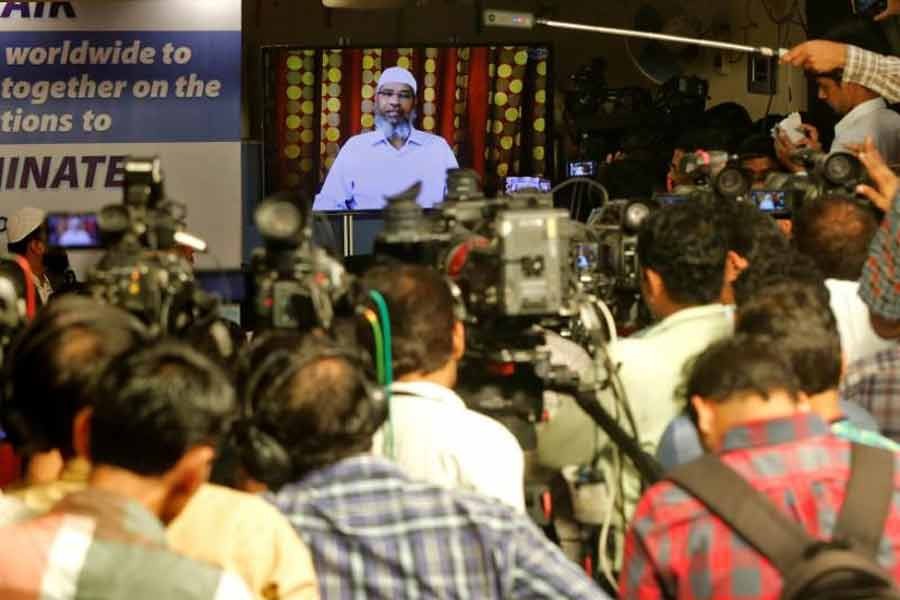Interpol refuses red notice against Zakir Naik for third time

Published :
Updated :

Interpol has for the third time rejected India’s request for a red notice (RN) to provisionally arrest television evangelist Zakir Naik while questioning the very basis of invoking money laundering and hate speech charges against Naik in the country.
The fact that he raised money from his religious teachings and spent it is “irrelevant” and cannot amount to money laundering, Interpol’s adjudicating panel noted in its order, reports Hindustan Times.
Dismissing the evidence furnished by the National Investigation Agency (NIA) of India for the provisional arrest of Naik for extradition to India, the commission for the control of Interpol’s files noted that asking for donations during speeches and the recording or diffusion of speeches were not in itself a criminal act that could constitute the component of criminal offence for money laundering.
While NIA claimed that Naik and his associates promoted enmity and hatred between different religious groups in India through public speeches and lectures, the Interpol panel highlighted that promoting religion and religious views could not be per se considered as committing a criminal act and there was no close link between the alleged incitement by Naik and any ensuing act of violence. It ordered deletion of data on Naik from Interpol files.
Advocate S Hari Haran, representing Naik at various legal fora, confirmed the panel’s order, adding the parties received a copy of Interpol’s decision earlier this week. The order was passed following a deliberation by the Interpol panel between January 25 and 29.
A spokesperson for NIA wasn’t available for comment. However, an official at the agency, requesting anonymity, said: “We are yet to receive any communication from Interpol but if that’s the case, we will examine the decision and definitely write back to Interpol and address the gaps in the request. His religious views were inflammatory and have inspired several youngsters to join terrorism. We provided detailed evidence on him and his organisation Islamic Research Foundation (IRF).”
RNs are requests issued to Interpol’s 194 member states worldwide to locate and provisionally arrest or detain fugitives wanted either for prosecution or to serve a sentence.
Naik is wanted in India for money laundering and hate speech and also for allegedly promoting enmity and hatred between religious communities. He fled India after the terrorists, who attacked a cafe in Bangladesh’s Dhaka and killed 22 people in July 2016, said they were Naik’s admirers. In November 2016, the Indian government banned Naik and his organisation Islamic Research Foundation (IRF) for five years. Naik is currently in Malaysia and has secured a permanent residency there.
NIA, through the ministry of home affairs (MHA), made its first request to declare Naik an international fugitive in May 2017 but the Interpol panel turned it down, stating there was no charge sheet filed against him and that the charges were based on “vague” accusations.
After this, NIA approached Interpol again following the filing of a charge sheet against Naik and IRF before a special court, Mumbai.
In July 2019, the Interpol panel shot down the plea for a RN once again, underscoring that Naik was clearly a religious figure and any such action him could be perceived as taking a stance for or against a religious figure and create implications for its neutrality in view of varying positions taken by national entities.
The third request was moved by the Indian government in December 2019, citing a different set of facts and changed circumstances but Naik contended that the fresh request superimposed allegations of money-laundering on the same religious activities of Islamic teaching that were targeted in the previous request.


 For all latest news, follow The Financial Express Google News channel.
For all latest news, follow The Financial Express Google News channel.